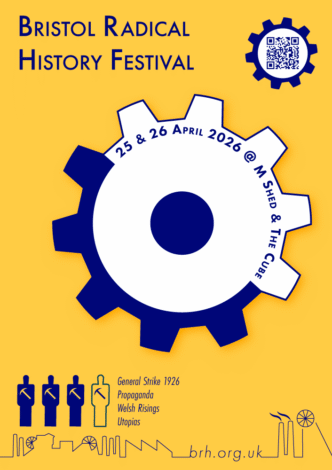Red Notes Choir
Catch Bristol’s wonderful Red Notes Choir, who will support the Bristol Radical History Festival by performing at 11:20am. They’ll be singing in the Ground Floor Foyer by the M Shed main entrance. The Red Notes Choir is a Bristol-based socialist choir. They have a repertoire of songs from around the world on historical, union, peace, green and human rights themes. We use the streets of Bristol and further afield to spread our message of fighting for the rights of working people, those who are […]


